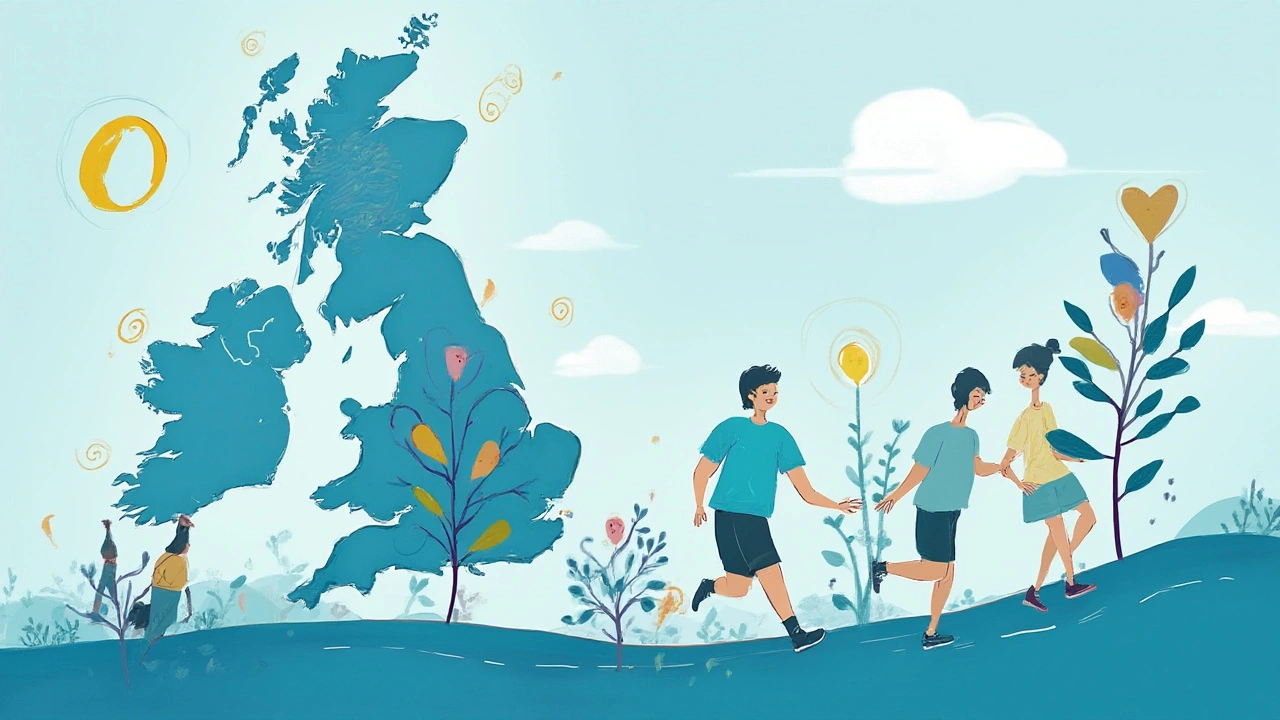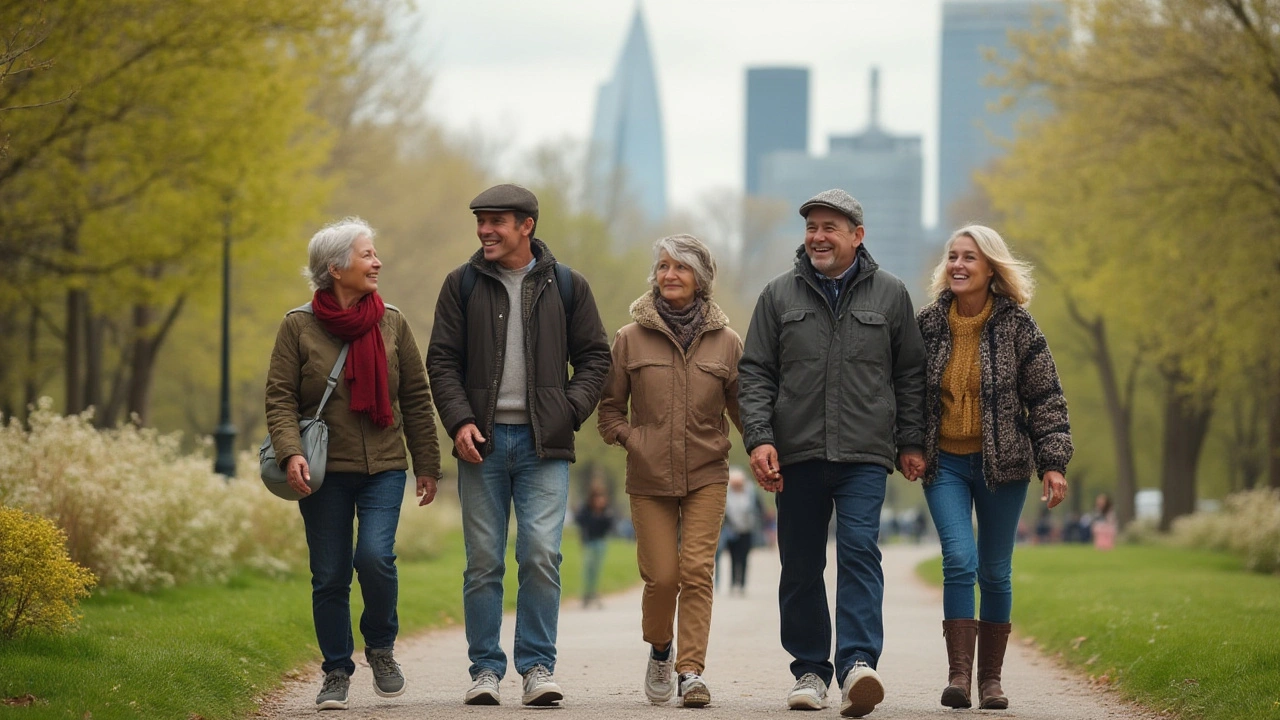Ever heard someone say, “It’s just a walk”? That phrase cracks me up now—because “just a walk” has changed my life. Ten thousand steps might sound trendy, but even half of that can flip a bad day, boost your mood, and even reset your body in ways you didn’t see coming. Doctors have started whispering—well, some are actually shouting—that walking might be the single most powerful thing you can do for your health for free. My kids always want to race to the park, and it turns out they’re onto something—they’re getting both mental and physical payoffs, and so can adults who walk every day. Get this: British researchers found that people who clocked even brisk 30-minute walks five days a week cut their risk of dying early from any cause by a whopping 24%. Yet most folks are still stuck thinking of walking as “extra credit” instead of a baseline. I get it; the gym feels intimidating, every fitness influencer tries to sell you something. But your own two feet? They’re the most underrated health tool you have.
Why Walking Works Wonders for Body and Brain
So, what actually happens when you start walking every day? Picture this: You don’t need superhuman motivation, overpriced gear, or even a gym membership. Even a stroll around your neighborhood is enough to stir up serious magic in your body. When you walk, your muscles get moving, your heart pumps more blood, and your brain starts tickling out all sorts of happy chemicals—like endorphins and serotonin. Heavy science nerds at Harvard published data last year showing people who walk daily—even at a chill pace—slash their chances of heart attack compared to those who sit nonstop. More wild? Scientists at the University of Iowa tracked adults for over a decade and spotted up to 50% reduced rates of dementia in regular walkers. One theory? Blood flow, baby! Walking feeds your brain with fresh oxygen and nutrients, almost like it's running a car wash for foggy thinking.
Ever heard of NEAT? It stands for non-exercise activity thermogenesis—a fancy term the pros use to account for all the calories you burn not working out, but, say, pacing during a phone call or chasing your toddler at the park. Walking can raise NEAT by hundreds of calories a day, which helps your metabolism tick along even when you’re not “officially” exercising. Not to mention, your immune system perks up when you walk. A study from Appalachian State University found people who took daily brisk walks during cold season had 43% fewer sick days. You’re building up your body’s anti-virus shield, no tangerine-sized vitamin pills required.
Let’s talk bones. After age 30, especially for women, bone density quietly slips away. The trick? Weight-bearing activity. Research in the journal Bone concluded that people who walked at least one mile per day had “significantly denser” bones than those who didn’t. If you're worried about knees, good news: Walking, compared to running, puts far less stress on your joints. In fact, it lubricates them, so arthritis risk actually drops the more consistently you walk. Even something as simple as fitting in an after-dinner stroll (hello, blood sugar balance!) can curb those wicked cravings for dessert. My secret: turning post-meal family walks into a game of “spot-the-most-unicorn-garden-ornaments.” The kids are distracted; my glucose stays steady. Everyone wins.

Little-Known Ways Walking Changes Your Mood and Mindset
Okay, so it’s good for your body. But here’s where it gets spicy—walking shifts your brain into a different gear. Ever noticed how your thoughts get clearer when you’re on the move? There’s real science behind the old “take a walk to clear your head” advice. Stanford researchers showed that creative output can spike by up to 60% during and just after a walk. Einstein and Darwin both swore by their daily rambles for big thinking. It’s not just creativity, either. Simple walks play a big role in mental health. The American Psychological Association says regular walkers report higher life satisfaction, more energy, and less anxiety than those glued to screens all day.
Here’s why: Every time you take a walk, cortisol—your body’s main stress hormone—drops. Your mind gets a mini-vacation, making it easier to deal with work, relationships, even the soul-pounding chaos of raising kids. As a mom, believe me—I’ve used “go for a walk” as a reset button on the worst days. People who walk outdoors also get a double boost from nature. Even a city park or a leafy street can lower your blood pressure and heart rate, according to Japanese “forest bathing” studies (real thing, not made up). And if sleep is your struggle, there’s evidence walking daily sets your inner circadian clock, helping you drift off faster and wake up more refreshed.
Social connection is another secret weapon. Walking groups—formally or just a stroll with a friend—can crush loneliness and build community. The UK’s NHS started “Walking for Health” programs, and participants reported less depression, fewer doctor visits, and even tighter-knit neighborhoods. Walking sparks conversations that just don’t happen sitting across a coffee table, since moving side by side feels safer and less intense. And even if you walk alone, getting out of the house daily can break repeating patterns of worry or boredom. Podcasts, audiobooks, or music are great, but sometimes just listening to your own breath and footsteps brings a weird, grounding calm: instant mindfulness.

Walking Smarter: How to Make Daily Walks Work for You
Want the health benefits of walking, but can’t figure out how to do it every day? I hear this all the time—everyone’s life is slammed with work, family, errands. So here’s what works for real people, not fitness robots. First, set the bar low enough that missing a day feels almost silly. Start with just 10-15 minutes after dinner or before work. For most parents, that’s basically the time it takes for the kids’ cartoons to finish. Track steps if it motivates you—smartphones, Fitbits, whatever works—but don’t obsess over numbers at the start. Just keep it consistent.
Mix up your route to keep it interesting. Take side streets, hunt for new yard art, or swing by your favorite coffee shop. Notice the world—flowers, weird clouds, dogs in sunglasses (actual thing in my neighborhood). Invite a friend once a week. Or, let kids set the pace; their discovery slows you down, and research shows slower walks still pack health benefits. Bad weather? Indoor malls, big box stores, or even stairwells work in a pinch. No need to get fancy gear—comfortable shoes are all you really need, but if you want an excuse for fun socks, go for it.
If you crave a challenge, add ‘walk intervals’: Pick up the pace between streetlights, then slow down. Or add hills. A little sweat is good, but don’t worry if you don’t hit the “brisk” zone every day. Even leisurely walks count. Hate going alone? Try audio-only phone calls with friends or join a walking challenge (yes, they have apps for this). And here’s a neat trick for busy people: Build walks into what you already do. Park further from the store, walk your kids to school, take a work call outside and pace the driveway.
Here’s a table showing just how much daily walking stacks up against more intense types of exercise, and what you get in return:
| Activity | Calories Burned/30min* | Heart Impact | Injury Risk | Mental Health Effect |
|---|---|---|---|---|
| Walking (brisk) | 120 | Lowers blood pressure, improves heart health | Very low | High (stress reduction, mood boost) |
| Running | 270 | Cardio boost | Moderate to high (joint strain) | Moderate-high (endorphins) |
| Cycling | 210 | Cardio boost | Moderate (accident risk) | Medium |
| Elliptical Trainer | 140 | Cardio/lower body | Low | Medium |
*For a 155lb adult, based on Harvard Medical stats
Personalize it: Some days I walk for fitness; sometimes I walk for sanity. My six-year-old, Mya, likes to count slugs, and Sutton stops to touch every interesting leaf. You’ll find your rhythm. Sometimes it’s not even about steps—it’s about pressing pause, getting sunshine, or just finding a minute that’s yours. Don’t listen to anyone who says walking “doesn’t count.” They’ve obviously never chased two kids around a duck pond. Your walk—fast or slow, city or woods—is your own little slice of well-being. Take it seriously. Your mind and body will thank you, maybe sooner than you think.
